Waste Audit benefits include waste reduction and cost savings but it doesn’t just end there.
Are you throwing out a lot of stuff in the name of ‘garbage?’ You may be throwing out a lot of “dollars” without realizing it. Hence, there is a strong need for you to be conscious of items you throw out as ‘waste’ and see if you can reduce, reuse or recycle them.
You can even pass them on to someone else who needs them. Not everything we don’t need anymore has to go in the garbage.
If you are not sure why the waste or garbage we generate should be audited or if you are an organization looking to save money by reducing garbage cost, this post is for you.
Waste Audit Definition
A waste audit is the study of the waste your facility produces.
Simply put a waste audit has to do with looking at or analyzing the types and amount of waste you or your company generates. 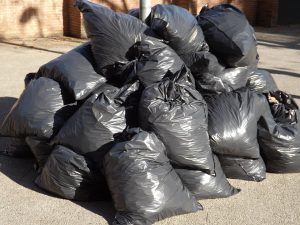 Waste audits help you gain understanding of the waste and recycling you produce.
Waste audits help you gain understanding of the waste and recycling you produce.
Waste audits can be conducted anywhere – your home, offices, schools, motels, hotels, hospitals, retail shopping complexes to mention a few.
It is important to note that the result from one audit will be different from another. No two audits are the same.
The Waste Audit Process
The process involves:
- Identifying the manner by which waste is managed.
- Measuring the quantity of waste.
- Identifying the composition of waste.
- Problem areas are noted and finding solutions to those areas.
- Comparing results from previous waste audits to see how well your organization is doing and how you can improve.
- The results from your waste audit serves as the foundation for developing your waste reduction work plan. The work plan outlines the next steps that should be taken to minimize waste produced. The workplan should clearly state who’s responsible for doing what, how the different wastes can be managed and timelines.
Statistics Canada Revelation

According to Statistics Canada, approximately 25 million tonnes of non – hazardous waste was sent to landfill in 2016. (This is the latest figure. Hopefully new waste figures for 2018 will be uploaded at some point this year since figures are updated on their site every 2 years).
It is shocking to point out that the figures from 2016 were very similar to that of 2014.
The figure was also broken down by source – IC& I (Industrial Commercial and Institutional) sectors, the non-residential source of waste disposal, produced approximately 14.7 million tonnes of waste while the residential sector produced approximately 10.2 million tonnes of waste!
Garbage if not managed properly sometimes make it into the oceans making sea animals sick! Not cool right? A great way of finding out how much garbage you generate is to carry out a waste audit.
Are you in Compliance?

As an organization, you need to know if you are required by law to comply with waste audit regulations. Even if you are not required by law to do waste audits, you will still save money and preserve our environment – less waste, source separation, less pollution and fewer worries on spending so much on garbage disposal!
I will explain the meaning of source separation later on in this post, so keep on reading!
Waste Audits in Ontario – Huge Fines for IC&I (Industrial, Commercial and Institutional sectors
Did you know? Waste Audits are mandatory in Ontario, Canada for the Industrial, Commercial and Institutional (IC&I) sectors that fall in the categories listed below. In Ontario Canada, compliance officers go out and issue fines to these organizations for not complying with waste and recycling regulations.
| Facility | Criteria |
| Restaurants | 3,000,000 or more in gross annual sales |
| Retail shopping complexes | Floor area 10,000 sq. m (107,639sq. ft) |
| Retail shopping establishments | Floor area 10,000 sq. m (107,639sq. ft) |
| Office buildings | Floor area 10,000 sq. m (107,639sq. ft) |
| Educational Institutions | 350 students or more |
| Hospitals | Class A, B or F |
| Hotels and Motels | At least 75 units |
| Large Manufacturing Institutions | 16,000 hours worked or more per month |
| Large construction projects | Floor area 2,000 sq. m |
| Large demolition projects | Floor area 2,000 sq. m |
The facilities specified above must also have source separation programs (Ontario regulations 103/94) in order to gain and remain in compliance with Ontario regulations 102/94 (WASTE AUDIT REGULATIONS). Ensuring you have appropriate office recycling containers will make a difference in a work place.
It is therefore important to point out that if you have received a fine, they should be addressed now as these officers will follow up with your organization(s) to ensure you are in compliance.
If found to be non-compliant, fines will increase! That’s not cool right? So what exactly is a Waste Audit and how do I define source separation? Keep on reading…
What is Source Separation?
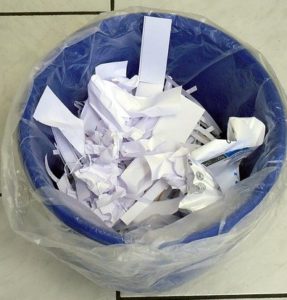
Source separation simply means, separation of items right at the point of generation! For example a worker sitting at his desk had to jot down a few things on paper. After use, he immediately puts the paper in the blue desk side bin meant for paper recycling.
There are so many benefits derived from separating waste right at the source.
Benefits of Separating Waste At Source
Separation of waste at the source is important because waste is managed efficiently and sustainably.
The only way to manage the waste you generate is to separate them in an efficient manner by keeping them in appropriate bins.
Mixing recyclables and waste will only result in contamination of materials. Managing your waste sustainably is key because the recyclables are not polluted by items that are deemed as ‘waste’. Overall the material picked up is cleaner and are eventually processed into products of high quality.
When we separate waste we become more conscious of the amount we actually produce; at this point we should take it a step further by asking ourselves what more we can do to reduce, reuse or recycle them efficiently.
Why carry out a waste audit? Here are 8 Reasons Your Organization Needs To Conduct One Every Year
There are many reasons why it is important for all organizations including the Industrial, Commercial and Institutional sectors to conduct waste audits. In short, waste audit benefits are numerous.
1.)The obvious one is that you want to know the type of waste materials you throw out everyday and to see ways by which such materials can be minimized or eliminated from your waste stream. This way you end up diverting a lot of materials from landfill and you save money too!
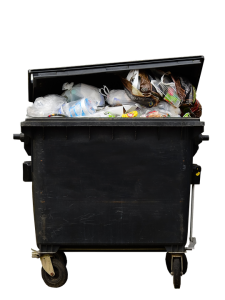
2.) A waste audit provides you with a data on the waste you generate. It will track pathways of your waste stream.
Reduction, Reuse and Recycling opportunities will be identified hence saving you money and saving the earth!
3.) Ways to improve your current waste and recycling practices are assessed.
4.)It is important for regulatory compliance. Designated facilities that do not comply are subject to fines.
These designated facilities however must conduct waste audits regularly in order to avoid fines that amount in hundreds of thousands of dollars!
The Ministry of Environment is going about these days to check all these facilities and place huge fines on businesses that are not complying with these regulations. I’m sure we don’t want to be one of them! For more details on how to get help with waste audits, recycling and more click here.
5.) Set yourself apart: Distinguish yourself from other competitors by conducting waste audits regularly. Let others see you as an environmentally conscious company or organization.
6.) Reduce garbage cost – waste audits open our eyes to the amount of materials we throw out as waste and therefore it makes us more conscious.
It also makes us think of ways to cut down either by eliminating certain items, by reusing materials we already have such as cardboard, turning old clothes into napkins or even quilts, donating toys to others who need them and lastly by recycling some that can’t be reused anymore. There are endless ways we can minimize wastage.
7.) Certifications – waste audits serve as basis for an organization to be 3Rs certified or LEED certified. It always feels good to work into an organization and you see their awards and achievements displayed in their lobby or reception area! Why not be one of them?
8.) Illegal dumping – waste audits will help you determine if a nearby business has been dumping their waste in your own bin or if employees and contractors are illegally dumping their waste on your premises!
Safety is key
Waste audits should always be carried out in an environment free of hazard. The team  conducting the audit must always wear protective gear – boots, gloves, masks, reflective gear and hard hats.
conducting the audit must always wear protective gear – boots, gloves, masks, reflective gear and hard hats.
What do you do after your waste Audit is completed?
Simple, the next step after the waste audit is to decide on how to go about reducing the amount of waste you generate.
The Good News – You are not alone
You don’t have to do these waste audits yourself! Garbage can be messy but never mind, Green Forever Environmental will do the work for you.
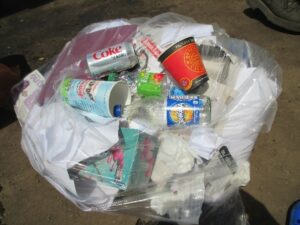
Green Forever Environmental will help you conduct waste audits regularly and even set up and monitor your waste and recycling programs to ensure you are doing the right thing! Say no to MOE (Ministry of Environment) fines. It’s time to act! Save money and preserve the planet at the same time. It’s a win win!
Conclusion
Waste Audit benefits are massive! Whether you are a business owner, a property manager, an assistant property manager, a supervisor, facility manager or a home-owner, I highly recommend you conduct waste audits on your property or properties regularly and separate your waste and recycling in appropriate waste sorting bins.
Waste audits are the key to controlling the amount of waste we generate. Infact, you will see how this decision will lower the amount of garbage you generate as this will also save you money.
Let me leave you with a few tips – never shop on impulse, keep a reusable bag handy at all times, reusable bottles will always come in handy so have one in your hands at all times.
Your company should consider doing waste audits to save money, keep garbage costs low, save the environment and gain compliance (for buildings affected). Let’s limit the waste we generate by saying no to single use items and buying in bulk.
Have you carried out a waste audit in your office building, school, restaurant, hospital or hotel? Do you need help with Waste Audits? Green Forever Environmental can help you.
Share your thoughts with me by leaving comments below. I would love to hear from you.
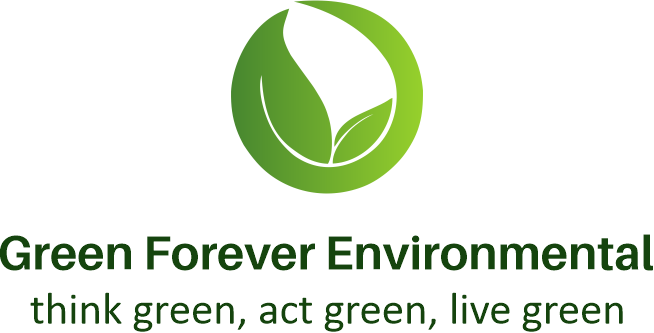
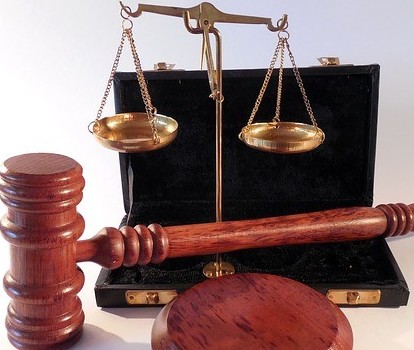
12 thoughts on “Waste Audit Benefits and 8 Reasons Your Organization Needs To Conduct One Every Year”
Waste audits should be implemented everywhere, I like that Canada does this. I know living here in California we don’t have audits like that and I believe it will cut down on a lot of unnecessary dumping. I’ll need to talk to the CEO of the company I work for now and see if we can implement our own audits on waste and since it is a non-profit I’m sure she’d be all for finding out on how to save money where we can and also help out our environment.
Thanks for leaving a comment Jason. I totally agree with you that waste audits should be implemented everywhere in order to cut down on the amount of waste we generate which will in turn make companies look good and in turn we save the environment from pollution. We all need to be conscious of what we buy and also we need to ask ourselves this question before making a purchase – “do i need this item or do I just want to buy it just because??”…There are so many ways companies can cut down their garbage and that is what we (GF Environmental) are all about. We are definitely here to help. I know you are in California but we can certainly help you cut down on garbage and design a waste management system that works for you. Feel free to use our contact form and we can take it up from there. Thanks.
This article is certainly thought provoking. We all know we should be doing more to recycle, but it seems things are just happening too slowly. I live in the UK, and most homes have separate bins provided for food waste, cardboard, glass and tins, which is great, but there are still lots of homes without. For instance, the last 2 places I have lived have had no recycling due to me living in narrow streets that the recyclable waste collection units cannot get down. I think due to the amount of very small streets (built originally for horse and cart) in Britain that it must be a big problem nationwide.
This leaves me mostly throwing all my rubbish in one bin, on occasion taking big stuff to the tip, material banks, or charity shops, but definitely not as much a I should. Your post has reminded me that I need to make a more conscious effort to do so, so thanks 🙂
I agree that maybe things are not moving quickly when it comes to managing our waste. We really need to do more to cut down our waste by refusing to even generate waste in the first place. It is good to know that there is a well defined waste separation and collection system in the UK for residents. On the other hand, it is sad that some homes are still without recycling bins. I am glad that you’re helping the environment by donating to charity and diverting waste that could end up in landfill. Thanks for leaving a comment Stefanie.
I’m from the US and as far as I know, we don’t do anything like that here. I operate a cleaning service and do all that I can to clean green. We use microfiber cleaning cloths instead of chemicals for cleaning with amazing results. Although I have provided bins for recycling in the public buildings that I service, it is discouraging to see how many people ignore them. I often see plastic drink bottles in trash cans that are right next to recycling bins! It’s so sad.
On a personal level, I have started to sell used items at a consignment store with very good results. I have met so many people there that are looking to purchase used items whenever they can because they care about the environment.
I hope waste audits will become a thing here, too!
Hi Theresa, first off, I’m glad you are doing your bit by applying green practices to your cleaning business and providing recycling bins to the buildings you service. We have to keep this conversation going by reaching out to our community and creating the awareness that not everything has to end up in the garbage. It is sad that the recycling bins are not even utilized and that some people would rather throw what should be recyclable into the ‘waste’. Perhaps if the bins are labeled this will help buildings recycle properly. Education is key when it comes to managing the garbage we generate. We can certainly cut down on garbage by reducing, reusing and then recycling in this order. Maybe you can talk to the manager of the building(s) you service to educate their staff on the importance of separating waste from recycling. This will reduce the amount of waste that makes it to the landfill.
Waste audits should be mandatory in all countries with proper regulations in place and that is why we GF Environmental is here to help businesses reduce their waste and save them money at the same time. Thanks for your comment.
I 100% agree with your introduction. In our community today people either throw away things that can be passed on to others or keep them in the house forever in one storage or allow them to go bad before tpssing them out.
Maybe the word poverty wouldn’t exist if people learn how to share with others what they have. In terms of sea/ecosystems, our waste is greatly affecting these species.
I love this article, environmental regulations are needed in every country across the world to better save our environment from pollution and extinction of species in our ecosystems. This is beautiful. Thank you
Thanks for stopping by Augusta. I’m glad you agree and feel this post will help put an end to pollution and environmental crisis across the globe. Visit again for more helpful environmental and waste management posts.
Hi! Auditing is important. And I really appreciate the tips you have mentioned here.
One of the biggest ways to help solve this problem, as you have also mentioned, is to avoid shopping on impulse. Many of the things we buy, a high percentage of them are bought emotionally. And as a result, they end up as waste too soon.
It is very important to know the composition of our waste. Afterall, how else would we know if we do not analyse our waste stream? Shopping on impulse should be a no no and in other to avoid this we should try and make a list of things we really need. I also believe that if you are going to go shopping set a regular schedule for yourself by picking for example one particular day a week and set that day aside for shopping. Thanks for stopping by and leaving a comment Henry.
Hey there,
This is an informative and educative article I must say. I live in Bangladesh and we do not have waste audits implemented here like Canada. But after reading your article and understanding the importance of it I think we should implement it here as soon as possible because the cleaning process of our country is not so good. Moreover I have come to know how separating my own waste and recycling it in appropriate waste sorting bins can save us money. I will keep all of your tips in mind.
Thank you for writing this helpful article.
Hi Mahin, I am glad you find this article helpful. My goal is to be able to reach out to as many individuals and organizations as possible with this post so that they can understand the importance of keeping the garbage we generate small and also diverting as much as possible away from landfill. The main focus is achieving zero waste and by practicing the 3Rs (reduce, reuse, recycle) everyday we will be able to get there sooner. I hope your country will be able to implement waste audit regulations as well. Thanks for leaving a comment.